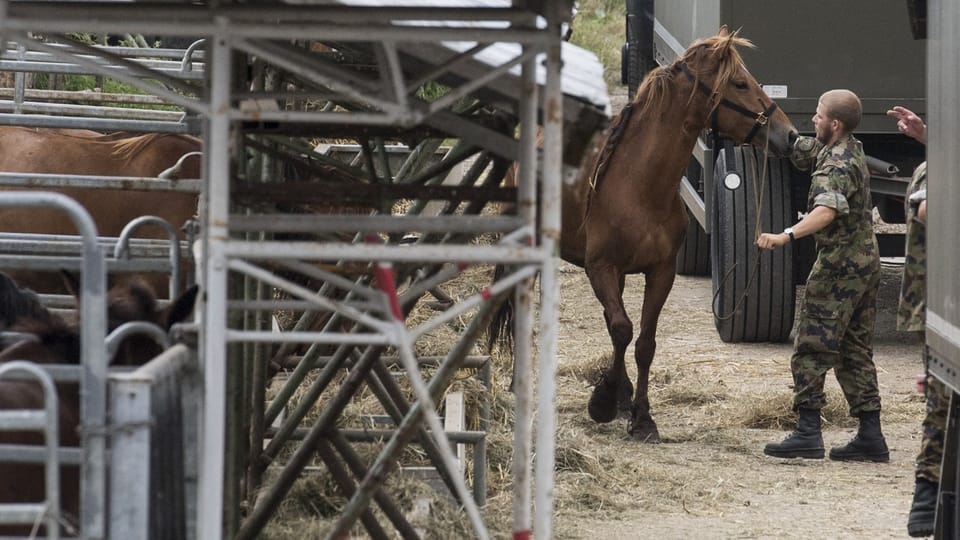In 2017, a farm with almost 100 horses in Hefenhofen was forcibly evacuated. Now the former Thurgau canton veterinarian and employees of the veterinary office are on trial. The accusation: the authorities acted too late. The top Swiss cantonal veterinarian Reto Wyss comments on the case in Radio SRF’s “Tagestalk”.
SRF News: Is the Hefenhofen case unique in Switzerland?
Reto Wyss: As a Bernese cantonal veterinarian, I have a term of office of 15 years. During this time I have not experienced a similar case in Switzerland. On the one hand, the period of 15 years is very long. On the other hand, it was about almost 100 horses. These sparked a lot of emotions.
The animal owner had been known to various authorities for years. But the machinery only got going when “Blick” published shocking pictures of the conditions on the farm. Why did public pressure need to get the veterinary office to take action?
From today’s perspective, I cannot judge whether the media pressure was necessary or whether it would have been enough if the pictures had been sent directly to the veterinary office. It is clear that the images have triggered an escalation. Because of the clear images, the veterinary office was able to act with political support and intervene on the farm together with the police. In our constitutional state we are bound by the principle of proportionality and cannot take the strictest measures from the outset.

Legend:
The images of neglected and emaciated horses on a farm in Hefenhofen shocked Switzerland in 2017. The main defendant’s farm was cleared by the army.
Keystone/Ennio Leanza
There is talk in the media about “authority failure”. You worked on the investigation report on this case, would you agree with this statement?
“Authority failure” is a catchphrase that the media likes to use. In this context, it is important to me to emphasize that in our liberal constitutional state, citizens are primarily responsible for complying with the laws. Animal owners are responsible for ensuring that they care for their animals properly. The authority comes second. The investigation report comes to the conclusion that one can speak of a failure of all authorities, but not of a failure of individual people.
Do you think it is right that individual people from the veterinary office are now on trial?
The process has been going on for some time now and I assume that the situation has been comprehensively assessed and not just individual people are being investigated. I’m not a criminal lawyer. However, I was a member of the investigative commission and therefore know the circumstances in the Hefenhofen case. I would be surprised if individuals were judged to be absolutely guilty.
The animal husbandry was inspected by the veterinary office, but the inspections were announced in each case. Is that common?
Basically, there is a basic inspection that takes place every four years at every livestock farm. In the event of defects, suspicions or reports, so-called interim inspections take place; around 40 percent of these are unannounced. Specifically, in this case, unannounced checks were carried out. However, since there were violent attacks on the controlling person, the police had to be called in. As soon as the police are involved, they also specify the inspection procedure that the veterinary office must adhere to.
The interview was conducted by Karoline Arn, collaboration: Géraldine Jäggi.
